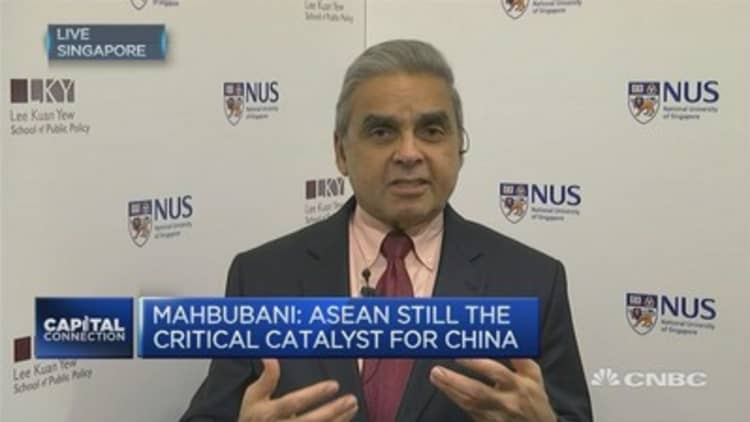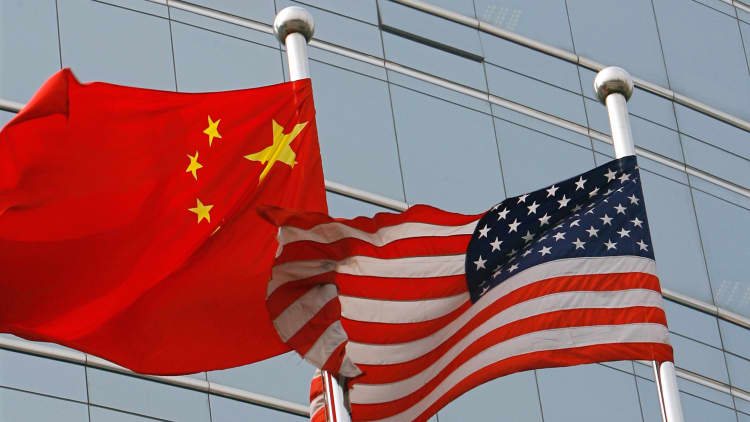U.S. president-elect Donald Trump is showing no signs of toning down his contentious rhetoric but come inauguration day on Jan. 20, he will need to rapidly reconfigure his relationship with China, former diplomats told CNBC.
So far, Trump has publicly criticized Beijing for unfairly manipulating its currency, applying insufficient pressure on rogue nation North Korea, taxing U.S. products, and militarizing the South China Sea. He's also questioned the decades-old "One China" policy, which stipulates Taiwan is a part of China, prompting criticism in China.
"The relationship between the U.S. and China is simply too big to fail, Trump needs to figure out how to take it forward," Christopher Hill, former U.S. ambassador to Iraq and South Korea, told CNBC on the sidelines of the the Lee Kuan Yew School of Public Policy Conference in Singapore.
Indeed, many have warned that a severed U.S.-China relationship would only result in a 'lose-lose' situation for both parties.
U.S. companies and consumers would lose access to China's low-cost workers and cheap Chinese imports while Washington would be unable to borrow from China, which holds more U.S. debt than any other country. Meanwhile, China's economy would get hit if Trump slaps higher tariffs on Chinese goods and places restrictions on Chinese investors from doing business in the U.S.
"Trump will soon find out that he doesn't get to pick and choose between crises ...he will learn that he has to be better prepared," stated Hill.
Kishore Mahbubani, Singapore's former ambassador to the United Nations (UN) and former president of the UN Security Council, echoed those thoughts.


"Within the bilateral China-U.S. relationship, Trump will soon figure out which areas he can negotiate with and which ones he can't."
Trade and currency are negotiable but 'One-China' isn't, he continued, referencing a recent editorial by Chinese newspaper Global Times that said the political policy "could not be bought or sold".
Global implications
"If U.S.-China relations go badly, all of Asia will be rocked," Mahbubani said.
The entire region wants to have close ties with both Beijing and Washington, and antagonism between the latter two will disrupt Asian trade flows, foreign policy and security co-operation, he added.
Of particular concern is North Korea.
Trump's anti-China stance is not at all conducive to resolving Pyongyang's seemingly expanding stash of nuclear weapons, cautioned Hill.
"The U.S. and China need to do a deep dive and resolve the problem together. Neither can solve it alone, but together they can do a better job than in the past."

